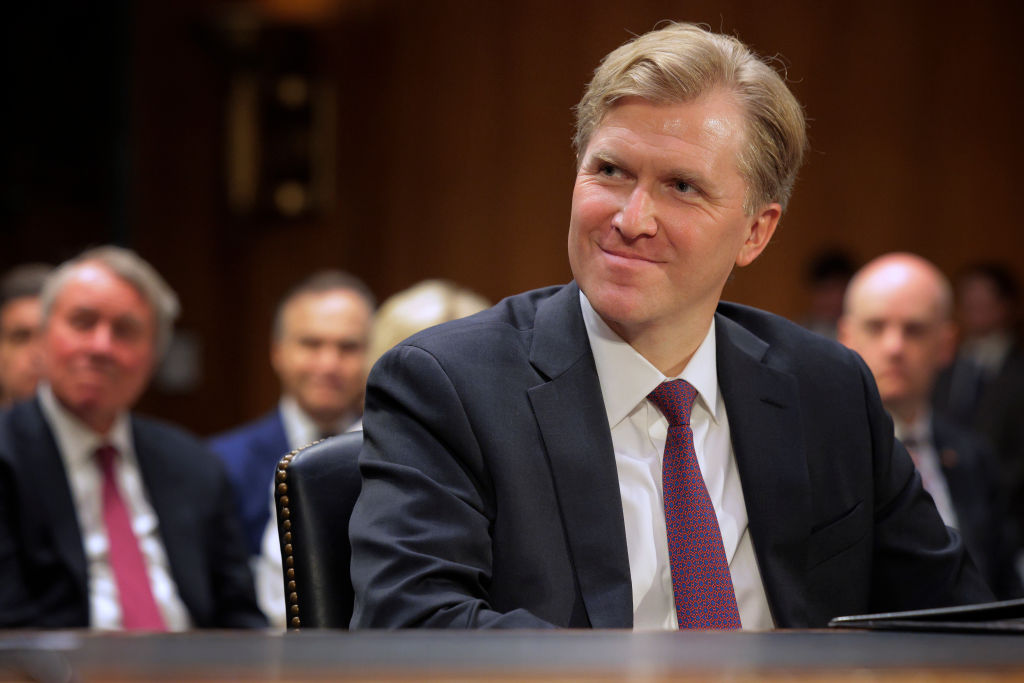Ukraine’s parliament sent jitters through Brussels this week with the passage of a bill which would strip independence from two anti-corruption bodies – the National Anti-corruption Bureau of Ukraine (NABU) and the Special Anti-Corruption Prosecutor’s Office – and would put them under the direct control of a presidentially-appointed role. European establishmentarians were aghast at the bill, with one official calling the bill’s passage “a serious step back.” Voices inside Ukraine, such as the Kyiv Independent, said it was “destroying independence” for investigators. President Volodymyr Zelensky, however, signed the bill, launched and passed primarily by his party, Servant of the People, later that day.
On the surface, from a populist-right perspective, the bill is – absent context – acceptable and should even be supported. After all, “independent” agencies and positions have been used by establishments across Europe to knee-cap populist movements. Slovakian Prime Minister Robert Fico correctly removed “independent” special prosecutor Daniel Lipšic, who had been appointed by his opponents almost explicitly to investigate him and his party (the removed prosecutor had a long history of being opposed to Fico in and out of various governments). And former Austrian Chancellor Sebastian Kurz has been the victim of multiple witch-hunts undertaken by “independent” Austrian judicial organizations.
Indeed, there is something inherently undemocratic about the existence of “independent” agencies which get government funds (read: taxpayer dollars) but have to answer to no one. These agencies often open litanies of investigations, leak saucy details to the public, and then – particularly in Austria, though this happens plenty elsewhere – simply close them a few years later, without filing charges and having dragged some unfortunate politician’s reputation through the mud.
NABU is not even able to launch criminal investigations, it can only refer them to the justice department. Which in a way is even worse, because effectively it can smear whomever it wants, as long as it wants, and no one can stop it.
The problem is that Zelensky did not just become president. When Fico eliminated the position of special prosecutor, he did so less than a year after taking office. That’s because Lipšic was transparently biased against Fico and his party, and Fico needed him out.
But Zelensky has been president since 2019 and has had an overwhelming majority in parliament for almost that entire time. Yes, he has been understandably distracted with the expansion of the Russo-Ukrainian War, but that happened in early 2022, meaning he would have had almost three years to make these changes. If NABU was led by anti-Zelensky or anti-Servant party zealots, he had plenty of time to restructure the organisation.
Plus, the way the bill was passed – with the provisions ending NABU’s independence shoved onto an unrelated bill on prosecuting missing persons cases at the last minute – reeked of attempting to hide the move until it was too late for Ukrainian civil society (or allies) to push back against it.
On top of that, the EU implied that the bill was linked to Ukraine’s accession – imperilling a goal long sought by Zelensky.
So why act now, over six years into his term? Zelensky said that it was necessary to go forward “without Russian influences,” and in the day prior to passage Ukrainian government agents arrested an individual affiliated with the organisation whom they claimed was a Russian spy. But the raid that involved was large, targeting multiple staffers, some of whom, according to NABU, had only been involved in traffic accidents.
Traffic accidents justifying a massive raid is curious, but so is Zelensky’s argument that Russian influence had anything to do with this. If NABU was full of Russian spies, they could have arrested them either way; taking control of the organisation was not necessary here.
It is no question that Zelensky has grabbed significant amounts of power for himself during the conflict. But while this was seen as acceptable during wartime, the war is winding down (or that Ukraine is not on the verge of a victory – if anything, the opposite is true). Actions being taken now, including Ukraine’s recent cabinet reshuffle, are a set-up for what is to come in Ukraine’s future.
The only rational reason left is a dismal one: that Zelensky, or someone in his government, is worried about what NABU might find out about current or future actions Zelensky, or someone in his government, plans on taking.
This not only confirms the concerns of those who have critiqued Zelensky for some time, but it also should worry Ukraine’s staunch liberal internationalist allies, most of whom have looked past some of Zelensky’s less-savoury moments. The creation of NABU was considered by the EU crucial to Ukraine’s closeness with Europe. Will they really want a country famous for extensive corruption (since independence, its “shadow economy” was anywhere from 30 per cent to even 50 per cent of GDP) which also eliminates independent government organisations, the only ones which could investigate that corruption?
Here is the situation facing Ukraine, and its liberal democratic allies: Ukraine is likely going to end the Russo-Ukrainian War having lost. At best, Russia will have de facto absorbed something around 20 per cent of its territory, including the entire Sea of Azov. At worst, the war will end with Russia slowly and surely having conquered even more land, possibly rendering Ukraine a rump state. The population has gone down by millions, and most of those refugees will not be eager to return to a war-torn, poor country (one recent poll found that less than half of the 5 million refugees abroad plan on returning). Ukraine’s prime fighting-age men are either being killed, wounded, or will return angry and combat-trained. They, and the remaining population, will likely believe some sort of stab-in-the-back theory. Why? Because Zelensky and his liberal internationalist allies promised absolute victory for years. Now, suddenly, it will be pulled away. And without the war, Zelensky will not have the martial law which has so expanded his power, from being able to block elections to being able to ban and control media.
Add to all this Ukraine’s revolutionary history: 1991, 2004, and 2014 all featured mass protests which resulted in government overthrows and leadership changes; Zelensky’s signing of the NABU law immediately saw angry protestors storm the streets nationwide, even with Russian missiles threatening to rain down on their heads.
In short, Ukraine will be a powder keg waiting to explode. Zelensky may be preparing for that explosion now by seeking to restrict independent investigations (which could set the powder off in a post-war environment).
But of course, in doing so, he is risking a premature explosion.





New US policy may make Zelensky’s peace plan impossible, time to negotiate